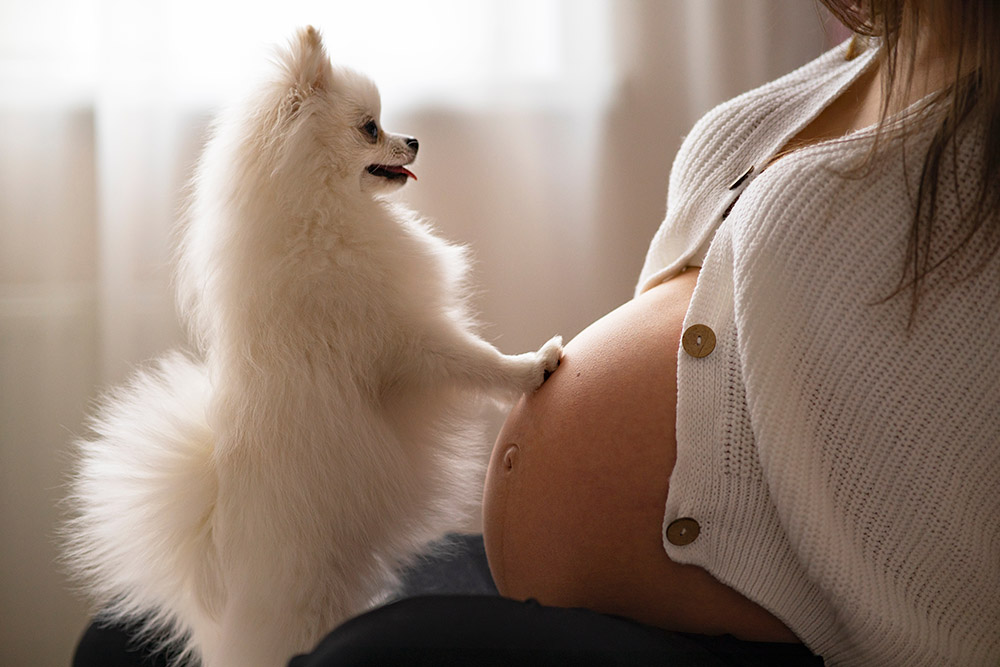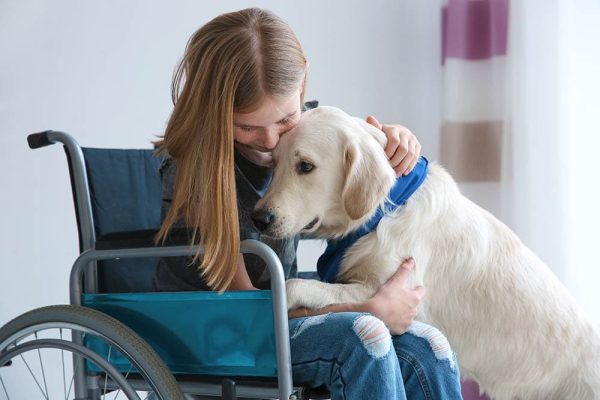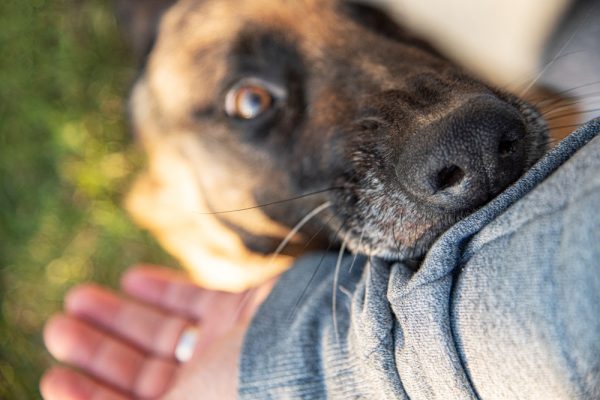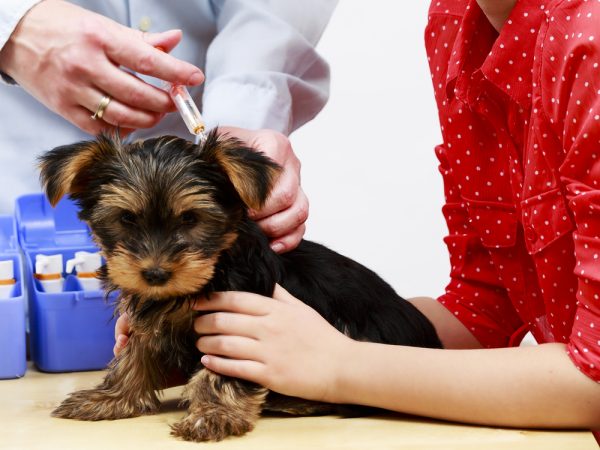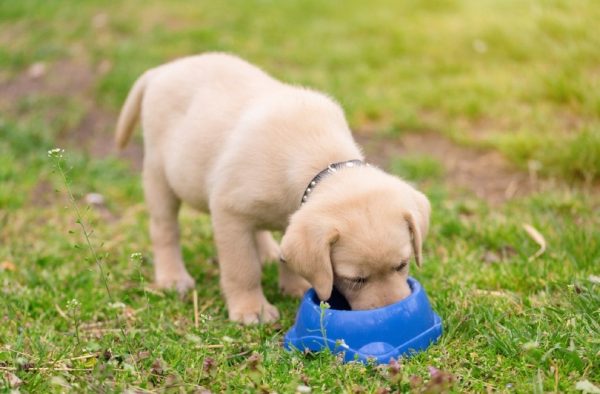In this article
Midwives and doulas are trained to help with human births in different ways. Dogs might also be able to provide a form of labor assistance to pregnant people on certain occasions. For this reason, certain dogs, referred to as “dog doulas,” can be trained to provide emotional support, companionship, and comfort to expectant parents during labor and childbirth.
Here are several ways in which a dog can potentially help during a birth.

What Is a Doula?
A doula is a person, typically a woman, who is trained to provide guidance and support to a pregnant person before and during childbirth. There are also doulas who provide guidance and support to the parent of a newborn. Doulas go through training programs to become certified, but they do not have formal medical or obstetrical training as a doctor or midwife would.
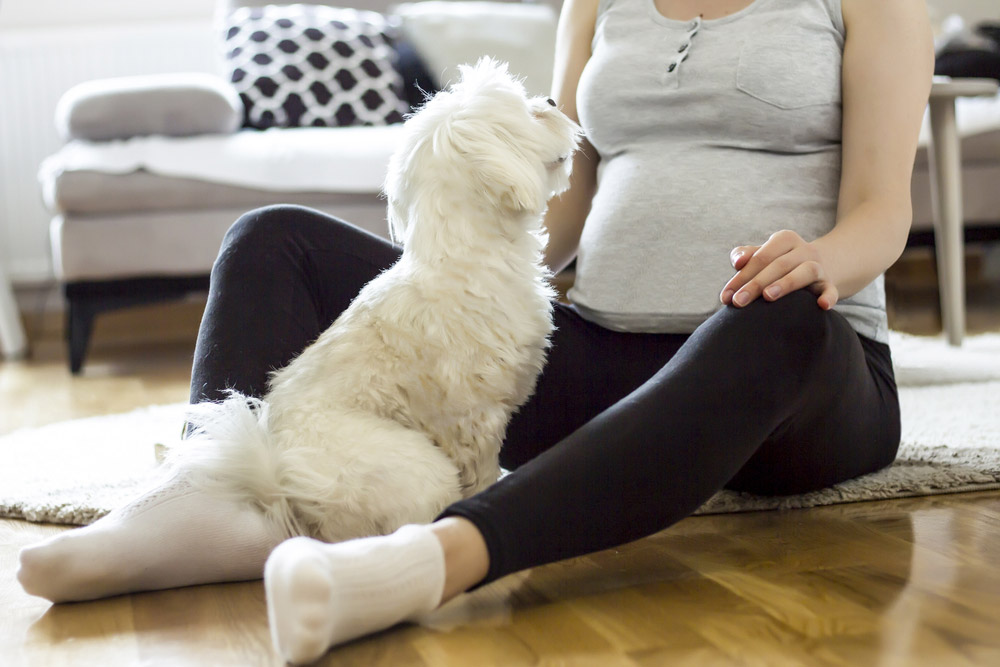

How Could a Dog Be Helpful During a Birth?
Dogs can be trained to help and support humans in various ways. A well-trained service dog can benefit people with physical disabilities, chronic illnesses, and psychiatric challenges. Some doulas can help families’ pets become “trained canine labor support” dogs¹. Having your pup be a part of your birth plan can potentially provide several advantages that can make the experience even more special and rewarding. That said, you should always consult with your healthcare providers if having your dog assist you during labor is feasible.
Here are some advantages of having a dog doula.
1. Emotional Support
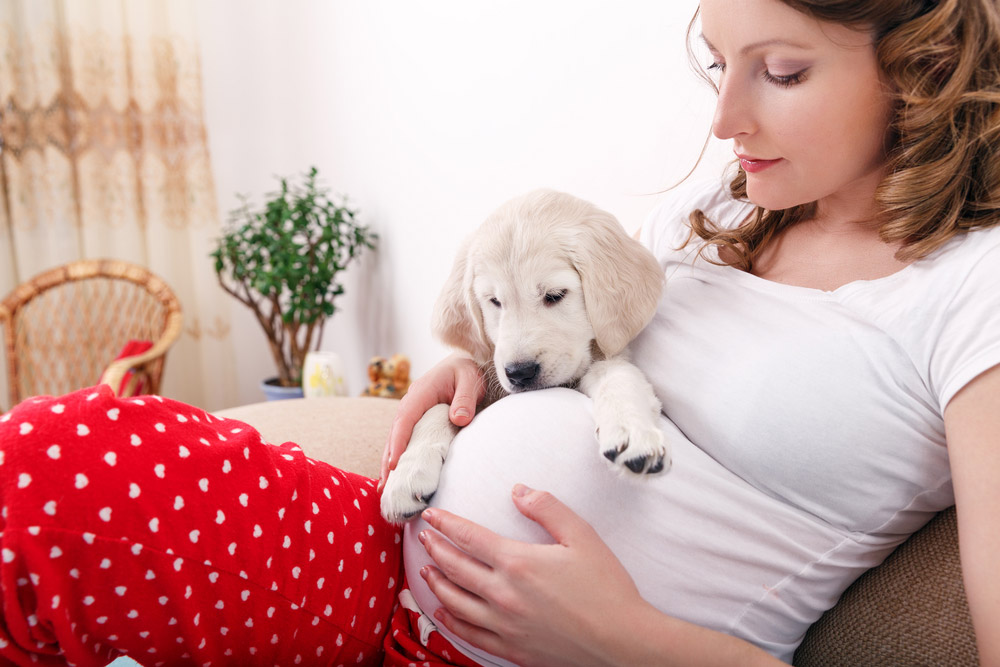
Dogs are known for their ability to provide unconditional love and comfort. During labor, having a beloved pet nearby can reduce stress and anxiety for the expectant parent.
2. Distraction
Labor can be intense and physically demanding, and having a dog present can serve as a welcome distraction. Engaging with a playful or affectionate pet can help take the parent-to-be’s mind off the discomfort of contractions and provide moments of happiness and laughter during the birthing experience.
3. Companionship
Labor and childbirth can be a long and exhausting process, especially for birth parents who are laboring at home or in a non-traditional setting. A dog’s presence can provide companionship and a sense of security during this time, making the experience feel less lonely and isolating.
4. Physical Comfort
Dogs have an innate ability to sense when their owners are in distress or discomfort. Many of us have received welcome extra attention from our dogs during times we were sick or emotionally upset. During labor, a dog may instinctively stay close to the expectant parent, offering warmth and physical comfort through gentle nudges, leaning against them, or lying nearby. The rhythmic sound of a dog’s breathing or the sensation of their fur can also have a soothing effect.
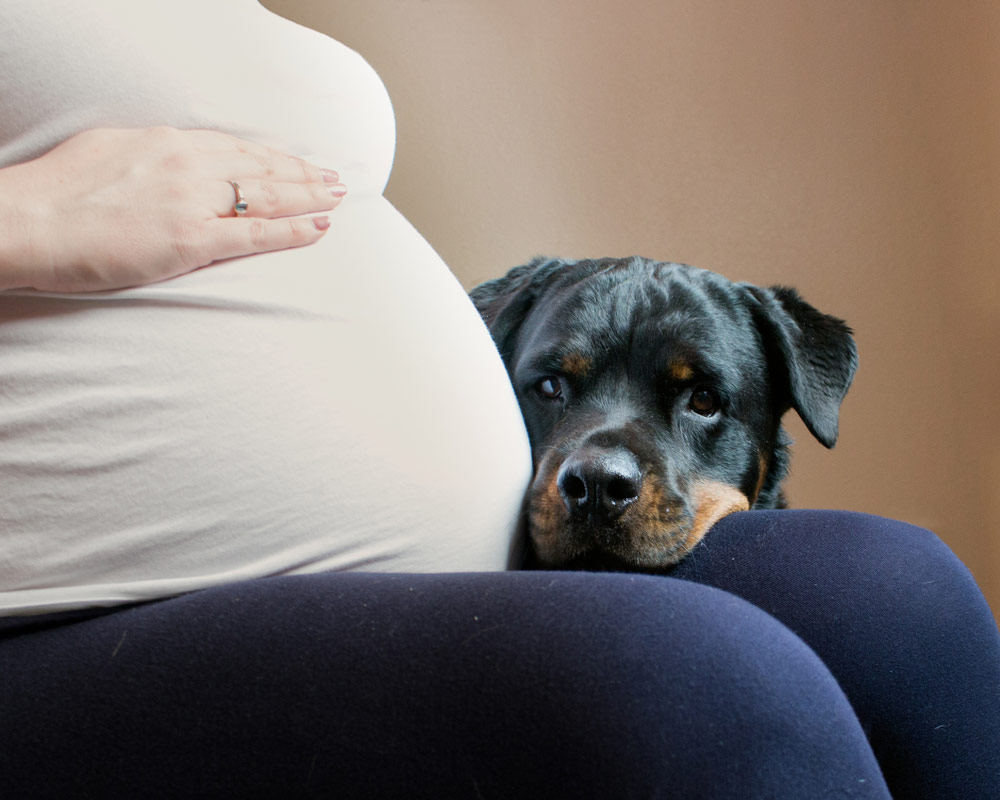
5. Reducing Stress
Research has shown that interacting with dogs can help lower heart rate, blood pressure, and cortisol levels—all of which are beneficial for reducing stress and promoting relaxation. This can be particularly helpful during labor, as a calm and relaxed environment can facilitate a smoother and more comfortable birthing experience.
6. Postpartum Support
After the birth, a dog can continue to provide support and comfort to the new parent and their baby. Dogs often form strong bonds with newborns and can be gentle and protective around them. Having a dog around can help create a nurturing and supportive environment for the family as they adjust to life with a new baby.

Conclusion
While dogs can offer valuable emotional support during labor and childbirth, it’s essential to consider the safety of the newborn and parent and their individual circumstances and preferences. Some expectant parents may find comfort in having their dog present during labor, while others may prefer a quieter or more controlled environment. It’s essential to discuss any concerns, regulations, or potential risks with healthcare providers and consider the dog’s temperament and behavior before deciding whether to have them trained to be present during the birth.
Featured Image Credit: Daria Lixovetckay, Shutterstock
